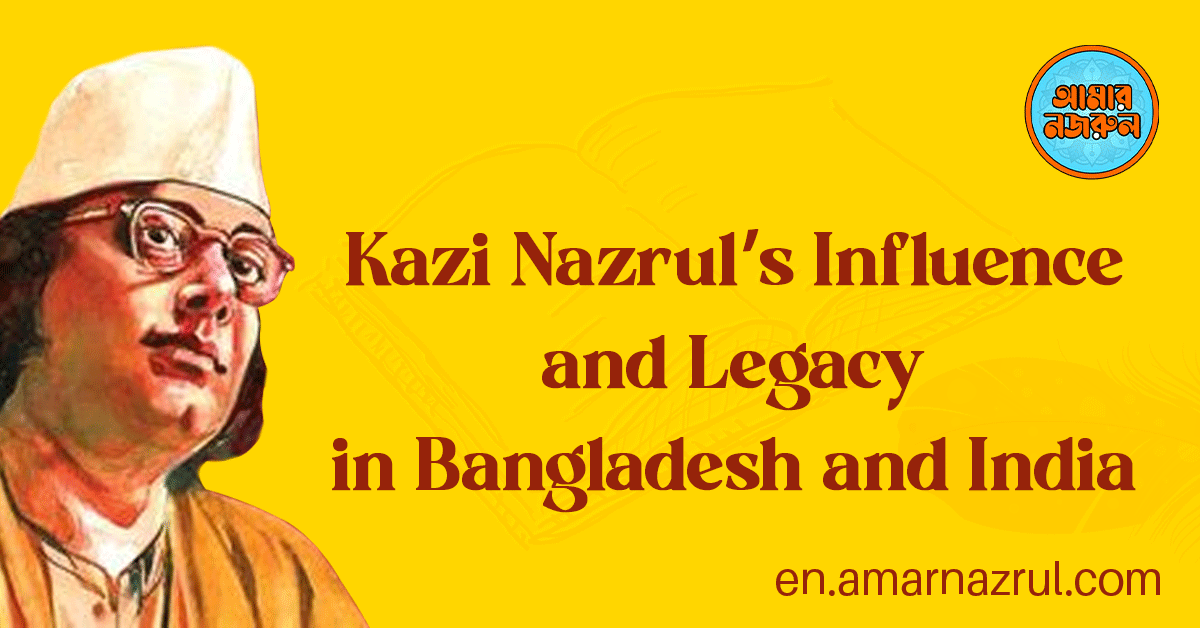Kazi Nazrul Islam, commonly known as the “Rebel Poet,” holds a venerable position in the literary and cultural domains of both Bangladesh and India. He is not merely remembered for his poetry, but also for his myriad roles as a musician, revolutionary, and journalist. Born in India and later becoming the national poet of Bangladesh, Nazrul’s influences are imprinted deeply in the psyche of both nations.
Early Life and Works
Kazi Nazrul Islam was born in 1899 in the Churulia village of the Paschimbanga region in India. His early life, mired in hardship and struggles, would go on to shape the fierce spirit of rebellion that we encounter in his poetry. Nazrul’s youthful years witnessed the tumultuous phases of the Indian independence movement against British colonialism. These events left an indelible impact on his thoughts and writings.
Nazrul’s Rebel Spirit
The very epithet “Rebel Poet” alludes to Nazrul’s uninhibited spirit. His poetry echoed the sentiments of revolution and defiance. His most iconic poem, “Bidrohi” (The Rebel), stands as a testament to his revolutionary spirit. He not only wrote against British colonialism but also against any form of oppression, be it religious, caste-based, or gender-related.
In both Bangladesh and India, Nazrul’s rebel spirit resonated profoundly with the youth. It inspired countless individuals to question the status quo, and it became an anthem of sorts for those who dared to dream of a free and equal society.
Nazrul’s Contributions to Music
Kazi Nazrul’s influence was not limited to literature alone. He was a prolific composer, producing nearly 3,000 songs that spanned various genres from patriotic to spiritual, romantic to philosophical. These “Nazrul Geeti” (Nazrul’s Songs) are celebrated for their depth and versatility. They are an integral part of the cultural fabric of both Bangladesh and West Bengal in India.
His fusion of classical Indian ragas with the spiritual ethos of diverse religions showcased his vision of unity and harmony. For instance, in India, his Shama Sangeet (songs dedicated to Goddess Kali) are revered and often played in temples and during religious gatherings. Similarly, in Bangladesh, his Islamic devotional songs are immensely popular.
Nazrul as a Journalist and Advocate for Unity
Apart from literature and music, Nazrul was also actively involved in journalism. Through his journals and newspapers like “Dhumketu”, he propagated ideas of communal harmony and unity. He was a staunch advocate for Hindu-Muslim unity, often emphasizing the shared cultural and historical ties between the two communities.
In India, at a time when communal tensions were escalating, Nazrul’s writings and songs promoting unity held significant importance. Similarly, in Bangladesh, he is revered for his secular and inclusive approach.
Nazrul’s Legacy in Bangladesh
Kazi Nazrul Islam’s influence in Bangladesh is monumental. After the country’s liberation in 1971, he was conferred the title of the national poet. His commitment to secularism and his embrace of diverse cultural elements mirror Bangladesh’s foundational principles.
His writings continue to be taught in schools, and his songs play an integral role in the nation’s cultural events. Every year, his birth and death anniversaries see a resurgence of interest in his works, with celebrations and events held in his honor.
Nazrul’s Legacy in India
In India, especially in West Bengal, Kazi Nazrul Islam’s legacy remains profound. While Rabindranath Tagore is the luminary figure in Bengali literature, Nazrul stands alongside him as an equally towering personality.
Many Indian singers, poets, and writers owe their inspiration to Nazrul. His songs are a staple in Bengali households, and his poems are an essential part of the literary curriculum. His commitment to communal harmony finds repeated mentions in discussions about India’s composite culture.
Conclusion
Kazi Nazrul Islam’s life was a symphony of defiance, creativity, and unity. His commitment to challenging oppressive structures, whether colonial, religious, or societal, made him a universal figure, not confined by geographical boundaries.
In both Bangladesh and India, his legacy is a reminder of the strength of the human spirit and its relentless quest for justice and love. His writings and songs, filled with passion and intensity, will continue to inspire generations to come. Nazrul’s name will forever be synonymous with rebellion against injustice, the unyielding spirit of humanity, and the beautiful confluence of cultures.
